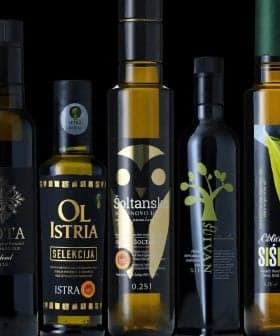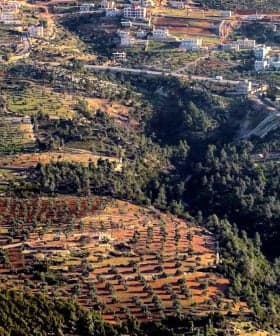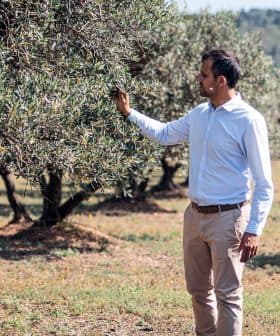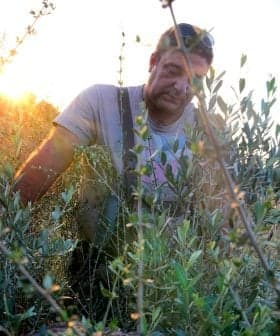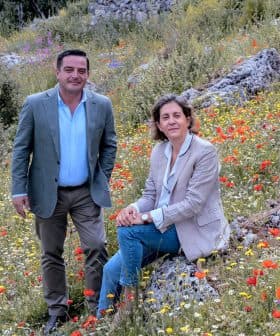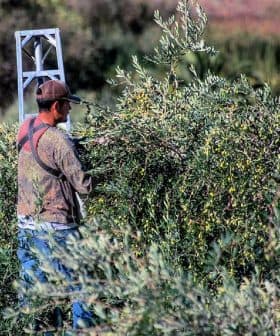 8.2K reads
8.2K readsProducer Profiles
Award-Winning Producer Promotes Rhodes as An Olive Oil Destination

The Kallas family in Rhodes has put the island on the map as a top olive oil-producing region, winning awards at the NYIOOC World Olive Oil Competition and emphasizing high-quality production despite challenges from climate change and wildfires. Natura Rodos cultivates 2,000 olive trees of four different varieties, with a focus on maintaining the highest quality of their olive oils through careful monitoring and extraction processes.
A popular tourist destination for Greeks and foreigners alike, the island of Rhodes in the southeastern Aegean Sea is not the first region that springs to mind when it comes to Greek olive oil.
However, the love of the Kallas family for olive trees has put Rhodes on the map of the country’s top olive oil-producing regions.
The message we wanted to send (with these awards) is that, apart from a top tourist destination, Rhodes is also a place where high-quality olive oil is produced.
The Kallases have cultivated olive trees for generations; their first olive oil was produced in 1959. Over the years, the family realized the way forward was to brand olive oil instead of selling it in bulk. The first olive oil from their olive groves was bottled in the late 1990s.
In 2000, the family moved all their operations to the village of Theologos in northwest Rhodes, founding Natura Rodos.
A turning point for the company was its maiden participation in the 2020 NYIOOC World Olive Oil Competition, where it won a Silver Award. Since then, Natura Rodos has consistently been awarded at the world’s largest olive oil quality contest.
See Also:Producer Profiles“The message we wanted to send is that, apart from a top tourist destination, Rhodes is also a place where high-quality olive oil is produced,” said Stavros Kallas, the company’s chief executive. “In the following years, we did not stop trying our best and earned a Gold Award in New York in 2022.”
“It is such a pleasure for us that our product was able to make its way abroad and be introduced to people from other continents and cultures,” he added. “Customers are always eager to try something that has been awarded and known to exceed specific standards of both quality and taste.”
In the 2023 NYIOOC, the company won another Gold Award for its Koroneiki extra virgin olive oil, followed by a Silver Award in 2024.
“Our efforts were rewarded in the best way possible, ensuring our presence among the best olive oils in the world,” Kallas said.
“This year’s award was especially significant because it was a really difficult year for us,” he added. “As a result of last year’s devastating wildfires, our island’s crops and natural environment were severely affected, and we witnessed the effects of climate change on the island’s ecosystem.”
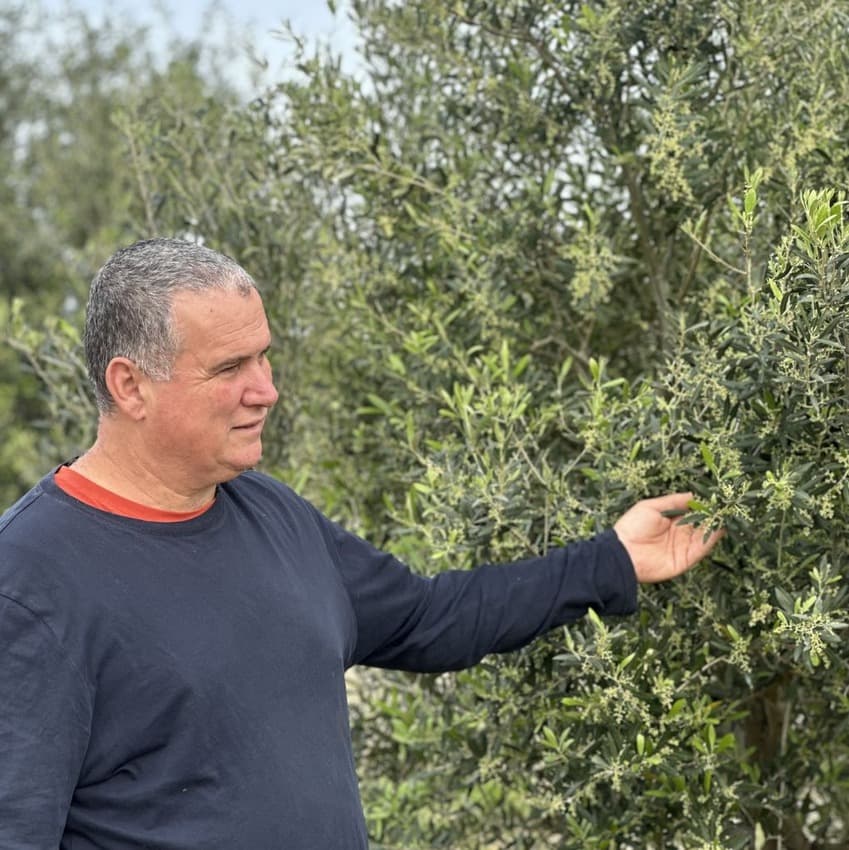
Kallas grows four varities, including Frantoio introduced during the Italian occupation in the early 20th century. (Photo: Natura Rodos)
Natura Rodos cultivates 2,000 olive trees of four different varieties: the Greek Koroneiki, the Italian Frantoio and the Spanish Arbequina and Picual. Around a quarter of the company’s trees are organically grown.
Kallas said that the Koroneiki trees have the highest yield of their olive varieties, while the trees of the two Spanish cultivars are the youngest in the family groves.
The Frantoio olive trees, on the other hand, have their roots in the Italian occupation of Rhodes, which started in the early 1910s and lasted for 30 years.
“Growing olive trees of different varieties also gives us some flexibility since their fruits can be picked at slightly different times during harvest,” he said.
However, like almost every other olive oil producer in the Mediterranean basin, Natura Rodos is affected by climate change.
“The increased temperatures during the flowering of the trees and the marked reduction in rainfall impact the olive oil yield of our trees,” Kallas said. “We had to irrigate most of our olive groves to maintain our production capacity and the high organoleptic characteristics of our olive oils.”
Kallas added that wildfires are another significant threat Rhodian farmers face, with many of the island’s olive trees burning yearly.
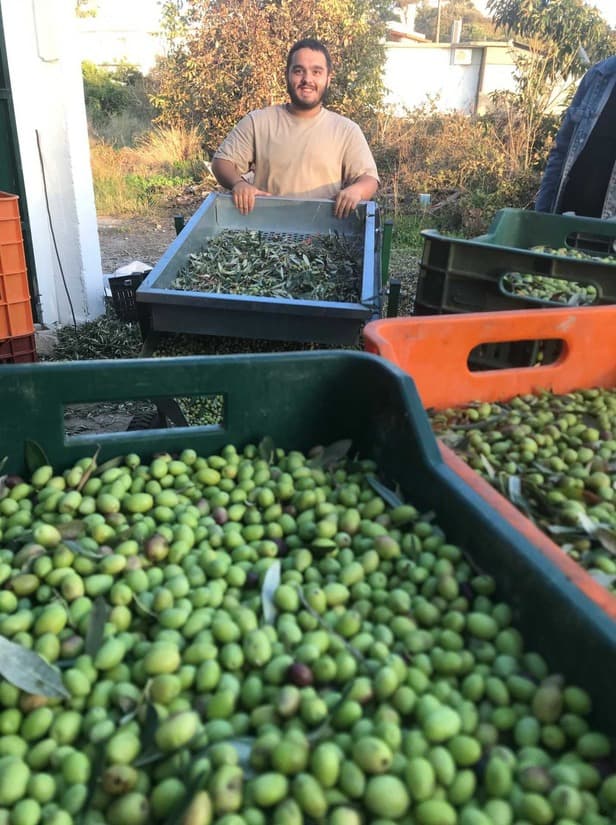
Climate change has been a consistent challenge for producers on the island of Rhodes. (Photo: Natura Rodos)
“Our trees have so far remained unaffected by fires, but we have noticed that our sales drop significantly in fire-stricken areas,” he said.
“Fires are an unpredictable factor that causes anxiety to all the island’s olive growers,” Kallas added. “For this reason, we constantly clear our groves from dry grass and weeds in the summer and apply all fire-protection measures.”
Rhodes, known in Greece as the ‘Emerald Island,’ is the country’s fourth-largest island and home to more than 1.5 million olive trees, primarily Greek cultivars.
Last August, large swathes of agricultural land, including 50,000 olive trees, were damaged by a wildfire that burned for more than ten days in central and eastern Rhodes.
Kallas emphasized that Natura Rodos’s permanent goal is to maintain the highest quality of its olive oils.
“We keep the acidity of our extra virgin olive oils low and constantly monitor all the parameters during extraction to be within limits,” he said. ”We prefer to get a lower quantity of oil than losing the delicate organoleptic characteristics of our olive oils.”
“We knew we had a quality product in our hands, so we decided to enter the New York competition in the first place,” Kallas added. “Our island, Rhodes, also receives acclaim from our recognition at the NYIOOC, becoming known as a place that produces high-quality, flavorful agricultural products.”


